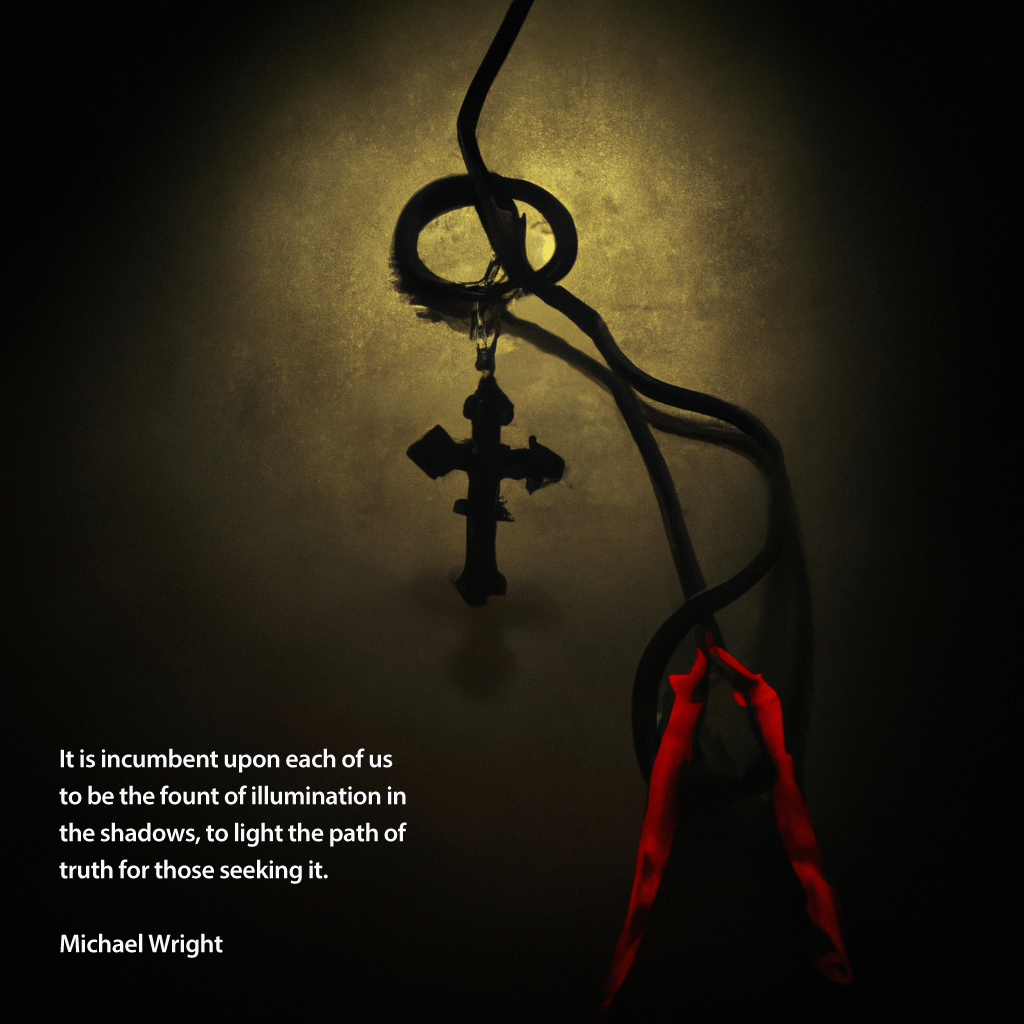August 2023 INSIGHTS
The Blame Game: A Critical Examination of Abusive Behavior in religion-based managed care facilities and how it Permeates into societal disfunction
By Michael Wright

The power of Authenticity:
Group home environments are bustling spaces where counselors play a key role in molding the lives of their young residents. These professionals often work on the front lines, navigating the choppy waters of behavior management and psychological development. However, an alarming trend noticed by mental health professionals is the tendency for some counselors to solely attribute children’s problematic behavior to the children themselves, thus disregarding their professional responsibility.
This blame game, where children are held responsible for their actions without considering the broader socio-emotional context, can have severe consequences on their psychological well-being. The counselor, in their role, possesses the power to change narratives, shape perceptions, and influence behavior. However, when this power is exercised without a thorough understanding of the various factors contributing to children’s behavior, the outcome can be harmful.
In recent times, numerous allegations of physical and psychological abuse within certain religion-based group homes have come to light. These institutions, which are supposed to provide care and guidance to children, are reportedly becoming venues for manipulation and harm, according to multiple accounts from former residents. These allegations depict a troubling pattern of recurrent cycles of abuse, neglect, and blame-shifting. Such patterns have been observed in several of these homes, raising serious questions about their operation and management.
This article is not intended to cause irreparable harm to the organizations behind these facilities, but rather to raise awareness of incidents that have a harmful impact on the children and their parents who place their trust and hope with these religious-based homes.
In many of these cases, the counselors, who should be the protectors and guides for these children, are instead the alleged perpetrators. There are reports of physical abuse being concealed as discipline and enforced conformity.
Additionally, psychological strategies such as blaming children for their own maltreatment and accusing them of being pathological liars are reportedly used to silence them. The stories shared by these children are heart-wrenching. They speak of desperate attempts to bring attention to their situation, only to be dismissed as dishonest or exaggerating. For many of these children, their pleas fell on deaf ears, leading to further isolation and despair.
The Power of Authenticity:
Consider the case of Michael Wright, who at the age of 13 found himself entrusted to the care of a Christian-based Children’s Ranch for approximately two years. Persistently berated by a house parent, one of the home’s assigned figures, Wright was unfairly portrayed as a troublemaker to the other staff members. This individual, entrusted with the well-being of Wright and nine other children within the home, managed to isolate Wright effectively, leaving him vulnerable and susceptible to unimpeded abuse. Wright’s recollection of his growing anger is particularly poignant when considering the instance where he was taken to the dentist to have a severely infected molar extracted.
The parent figure, who is employed as the father figure of the house alongside his wife, was asked to provide the teenager with Tylenol or aspirin, Wright recalled, to help with the pain from the dental procedure. However, the counselor reportedly responded, “let him learn what it takes to be a man,” and refused to provide any form of pain relief, despite his wife’s sympathies. The child was left crying in agonizing pain for days, and developed a severe fever. At that point, wright, a child, saw the writing on the wall.
At the time, Wright, akin to most children his age, was unfamiliar with the psychological dynamics inherent in passive-aggressive behavior. Most children, due to their underdeveloped social skills and lack of life experience, cannot discern or understand the reasons behind such conduct. They lack the ability to comprehend the motivations driving these behavioral patterns, making them particularly susceptible to manipulation and the negative impacts associated with passive-aggressive behaviors.
“The Damaging Impact of Passive-Aggressive Behavior”
Passive-aggressive behavior can be an insidious form of psychological abuse, often difficult to recognize and confront due to its covert nature. It involves indirect expressions of hostility or negativity, which can manifest through actions such as subtle insults, sullen behavior, or deliberate failure to fulfill tasks.
The effects of passive-aggressive behavior can be profoundly damaging, particularly to those on the receiving end who may struggle to understand the cause of their discomfort. This type of behavior can lead to a hostile environment, undermining self-esteem and contributing to feelings of confusion, frustration, and guilt.
In relationships, whether they be personal or professional, passive-aggressiveness can erode trust and communication. For children exposed to such behavior, the effects can be even more destructive. It can impair their emotional development, create trust issues, and instill unhealthy patterns of interaction that can persist into adulthood.
Despite its damaging impact, passive-aggressive behavior often goes unchecked due to its subtle nature. It’s crucial to recognize and confront such behavior, and in some cases, professional help may be required. Education about healthy communication, emotional intelligence, and assertiveness training can provide valuable tools to combat the damaging effects of passive-aggressiveness.
In a nurturing and supportive environment, individuals can learn to express their feelings openly and honestly, replacing harmful passive-aggressive tendencies with constructive communication strategies.
What led to Wright’s eventual rescue from the abusive environment was an act that can only be described as evil, manipulative, and controlling on the part of this “House Parent”. Abuse, in its purest form.

